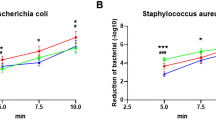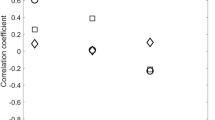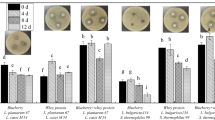Abstract
THE degree of heat resistance of spores of the various strains of Clostridium perfringens is a matter of both theoretical and practical importance, particularly because the organism is a potential food poisoning species. Studies carried out in various laboratories, by, among others, Hall et al.1, have indicated that spores of selected strains, when produced in Ellner's medium2, are less heat resistant than those produced in SEC broth. Hall et al. stated, “It seems probable that the atypical spores noted so frequently in this medium did not possess the heat resistant characteristic of those produced in foods by the parent strain”.
This is a preview of subscription content, access via your institution
Access options
Subscribe to this journal
Receive 51 print issues and online access
$199.00 per year
only $3.90 per issue
Buy this article
- Purchase on Springer Link
- Instant access to full article PDF
Prices may be subject to local taxes which are calculated during checkout
Similar content being viewed by others
References
Hall, H., Angelotti, R., Lewis, K., and Foter, M., J. Bact., 85, 1094 (1963).
Ellner, P., J. Bact., 71, 95 (1956).
Angelotti, R., Hall, H., Foter, J., and Lewis, K., Appl. Microbiol., 10, 193 (1962).
Author information
Authors and Affiliations
Rights and permissions
About this article
Cite this article
WEISS, K., STRONG, D. Effect of Suspending Medium on Heat Resistance of Spores of Clostridium perfringens. Nature 215, 530–531 (1967). https://doi.org/10.1038/215530a0
Received:
Revised:
Published:
Issue Date:
DOI: https://doi.org/10.1038/215530a0
Comments
By submitting a comment you agree to abide by our Terms and Community Guidelines. If you find something abusive or that does not comply with our terms or guidelines please flag it as inappropriate.



